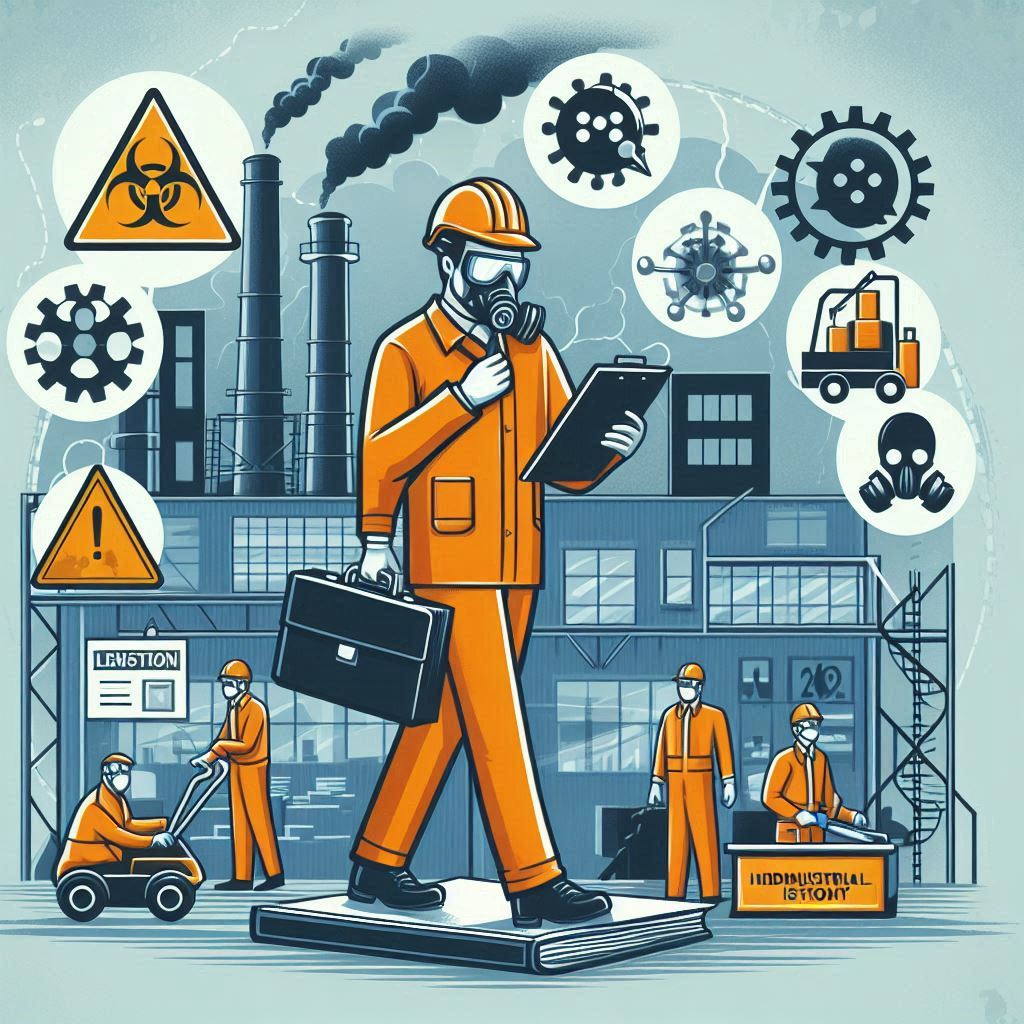
Role of an Industrial Hygienist: Ensuring Workplace Health and Safety
Milan SafetyShare
Role of an Industrial Hygienist: Ensuring Workplace Health and Safety
Industrial hygienists play a critical role in maintaining safe work environments by identifying, evaluating, and controlling health hazards in industrial settings. They focus on minimizing risks related to chemicals, biological agents, physical hazards (such as noise or radiation), and ergonomic issues.
Key Responsibilities:
- Hazard Identification: Industrial hygienists conduct risk assessments to identify potential health hazards, including toxic chemicals, dust, gases, and physical stressors.
- Air and Water Quality Testing: They test air and water quality to ensure compliance with safety standards.
- Noise and Vibration Control: Monitoring noise levels and controlling vibrations that could lead to long-term health issues.
- Employee Health Protection: They recommend personal protective equipment (PPE) and implement safety protocols to reduce exposure to harmful substances.
- Training and Awareness: Industrial hygienists educate employees and management on workplace hazards and proper safety practices.
- Regulatory Compliance: They ensure that companies comply with local and international health and safety regulations, including OSHA and ISO standards.
- Ergonomic Assessments: Evaluating workspaces to prevent musculoskeletal injuries through better ergonomic practices.
Study and Educational Path
Becoming an industrial hygienist typically requires a bachelor's degree in occupational health, environmental science, industrial hygiene, or a related field. Some advanced roles may require a master’s degree.
Key Courses:
- Toxicology: Understanding the effects of chemicals on human health.
- Industrial Hygiene: Techniques to recognize and control workplace hazards.
- Epidemiology: Studying the impact of occupational exposures on worker health.
- Environmental Science: Assessing air, water, and soil contamination.
- Occupational Safety and Health Administration (OSHA) Regulations: Knowledge of workplace safety regulations.
Certifications:
To enhance career prospects, professionals often pursue certifications such as:
- Certified Industrial Hygienist (CIH): This certification is offered by the American Board of Industrial Hygiene (ABIH) and is widely recognized.
- Certified Safety Professional (CSP): This certification emphasizes broader safety management.
Investment Required
- Education: A bachelor’s degree typically costs between ₹3,00,000 to ₹10,00,000 in India, depending on the institution.
- Certification: Certifications like CIH or CSP may cost between ₹1,00,000 to ₹2,00,000, including exam fees and study materials.
- Equipment and Tools: Some roles may require specialized tools for air sampling, noise level monitoring, etc., which could add an extra ₹50,000 to ₹1,00,000.
Salary Information
The salary of an industrial hygienist varies based on experience, location, and industry.
- Entry-Level Salary: In India, a starting salary typically ranges from ₹4,00,000 to ₹6,00,000 per year.
- Mid-Level Salary: With 5-10 years of experience, professionals can earn between ₹8,00,000 to ₹15,00,000 annually.
- Senior-Level Salary: Highly experienced professionals or those in leadership roles may earn upwards of ₹20,00,000 per year.
Conclusion
Industrial hygienists are vital in promoting health and safety in industrial settings. With a combination of education, certifications, and practical experience, they contribute significantly to preventing occupational diseases and ensuring regulatory compliance. The career offers good growth prospects, with a strong demand for skilled professionals across various industries.